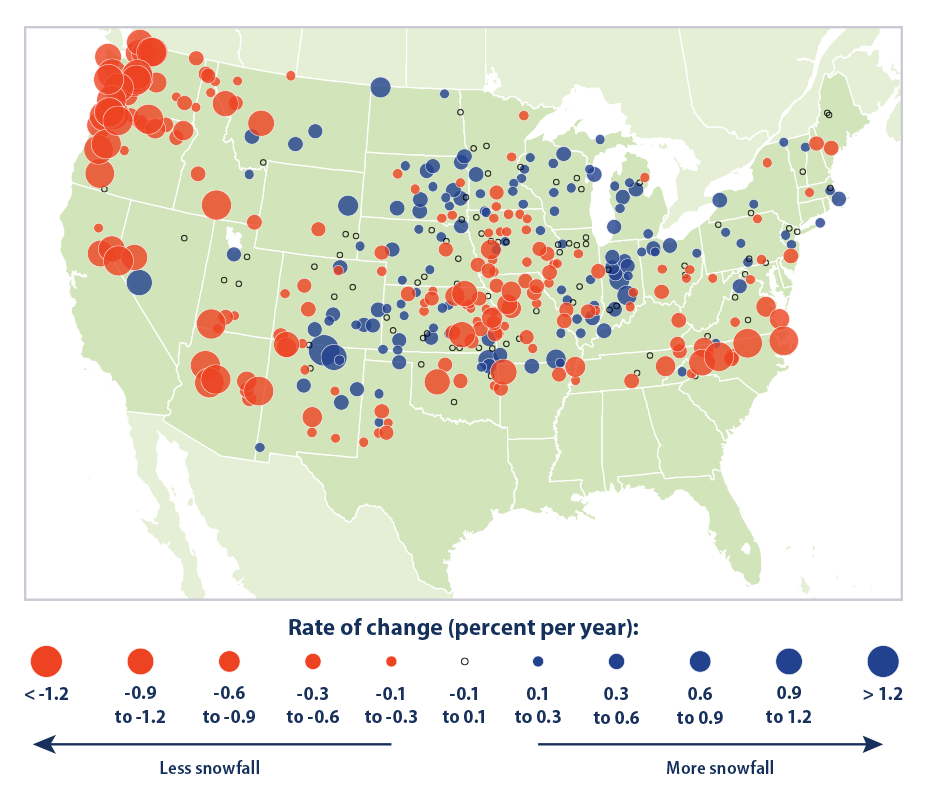Snowball fights, sledding, snowmen, all things that make the winter holiday season feel special. However, the past few years snow has been few and far between in Waterford.
Human induced climate change plays a big role in the lack of snow. Not only does the reduction in snow lead to a decrease in winter sports such as skiing, snowboarding, and sledding, but alongside this comes increased rainfall, which can lead to bigger storms.
Lead scientist at UC Berkeley Andrew Schwartz says “If global emissions aren’t curbed, “a large portion of the world will have snow-free winters by 2100.”
Snow loss can cause problems far past the winter. Increased rainfall and freshwater during the winter can lead to a decrease of water in the spring and summer, which is an issue for ecosystems that rely on it, and can contribute to wildfires and droughts.
This change the atmosphere to a more moist and humid climate because “For every degree Celsius the atmosphere warms, it can hold seven percent more water vapor,” says Schwartz.
Alongside this, when we do get snow, they will be bigger, heavier storms because of the increase in moisture.
Some might be questioning how the climate is warming but it is still cold out, but it is important to remember that climate and weather are very different. Weather is the short term temperatures and precipitation, while the climate is the bigger picture, and averages over a long period of time.
So, what as humans can we do to help global warming?
Biology and environmental science teacher Mrs. Herr says carbon reduction is the biggest factor in global warming. She says “The biggest individual steps that people can take are reducing meat consumption and not making frivolous purchases.” Meat takes a lot of land to produce, and forests are cut down all over the world to make more room for beef cattle. Additionally, anything manufactured requires transportation and production, releasing more carbon emissions into the world, polluting it.
Mrs. Herr believes that if we all collectively come together to try and reverse the effects of climate change, it is possible, but difficult. Since the industrial revolution, such large amounts of carbon has been polluting the earth, it would take decades to see reverse changes in the climate if we started today.
information from: National Geographic and epa.gov



